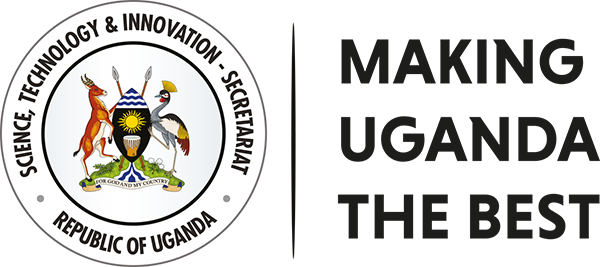In an era marked by rapid scientific and technological advancements and an unwavering drive for innovation, the concept of a knowledge-based economy has become increasingly relevant. As Uganda navigates the complexities of the 21st-century global landscape, it is clear that sustainable economic development hinges on substantial investments in science, technology, and innovation (STI). Embracing this paradigm shift is not just an option but a necessity.
During the launch of the National Budget Month, the Permanent Secretary to the Treasury, Ministry of Finance, Planning, and Economic Development, Ramathan Ggoobi, highlighted four priority areas that the government is focusing on to achieve comprehensive monetization of every aspect of the economy. One key area is building a knowledge-based economy through science, innovation, and technology.
In his speech, Ggoobi emphasized the significance of investing in STI as a pathway to creating a robust framework for transforming ideas into usable products, streamlining work processes, enhancing access to information, and fostering knowledge sharing. The ultimate goal is to improve the economy’s competitiveness.
For those unfamiliar with the concept, a knowledge-based economy is one where knowledge is acquired, created, transferred, and effectively used to enhance economic development. It provides the foundational elements necessary for scientific research, innovation, technology development and transfer (ITDT), and fuels private sector growth through a rich environment of information, expertise, and technological resources as defined by the National Budget Framework Paper for FY 2024/25.
One promising segment of Uganda’s knowledge economy is the pathogenic sub-sector, which includes research and development, technology transfer, and commercialization of innovations. This sub-sector targets pathogen control and management, such as vaccines, diagnostics, therapeutics, and related ecosystems. Uganda is making significant strides in this area and could become a net exporter to regional and global markets, particularly in the pharmaceutical sub-sector, which accounts for over 10% of Uganda’s manufactured value-added—the highest in the East African Community (EAC) region.
In the private sector, startups in a knowledge economy benefit from access to cutting-edge research, advanced technologies, and a wealth of data, enabling them to create groundbreaking products and services that meet evolving market demands. This access lowers barriers to entry, allowing entrepreneurs to launch and scale their ventures more efficiently. Additionally, the knowledge economy fosters a culture of collaboration and continuous learning, where startups can benefit from partnerships with academic institutions, research centers, and established companies, providing essential mentorship, funding, strategic guidance, and facilitating the exchange of ideas and best practices.
Science Technology and Innovation has the potential to address key development challenges facing Uganda, such as low industrialization and value addition, infectious disease outbreaks, limited application of ICT, low research and innovation in industries and academia, climate change issues, and low quality of life. Through knowledge-based pathways like ITDT, we can bridge the gap that has existed in the country regarding industrial development, which has left us behind in the use and application of STI in national development.
However, as a country, we have barely participated in or benefited from the innovations that have propelled other economies forward.
Building a knowledge-based economy will require intensive investments in science, innovation, knowledge transfer, research, and development across all spheres of production and business processes to spur growth. This will include, among other things, support for research and development in public universities and institutions, such as the National Agricultural Research Organization and its affiliates countrywide, as well as strengthening partnerships with private sector research and development institutions and scientists in the pathogenic and knowledge economy.
To ensure this is achieved, the government has undertaken several key interventions for FY 2024/25 to harness the power of a knowledge-based economy and the 4th industrial revolution. These interventions include supporting research and development (R&D) to foster new product development, new ways of doing business, and innovation.
Additionally, there is a deliberate investment in improving the quality of education (skills development) and ICT. A strategy for the long-term development of specialized skills is also being implemented to support a more sophisticated and diversified economy. Furthermore, an effective apprenticeship program is being developed with more developed and emerging economies to quickly acquire knowledge, expertise, and technology transfer.
We believe these initiatives are essential for building a knowledge-based economy that can drive Uganda’s sustainable economic development and ensure its competitiveness in the global market.







